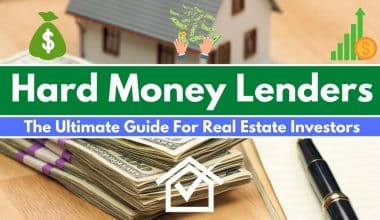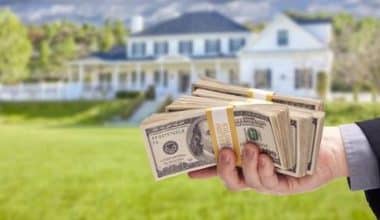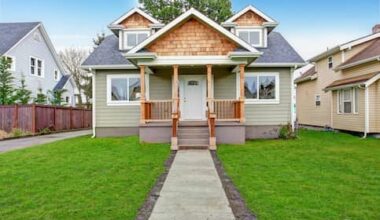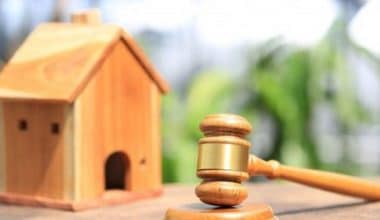When it comes to owning rental houses, there are a couple of things you should be aware of, even before you start the process of owning them. This is because the prices of rental houses were affected by the pandemic, making them less expensive. There are some pros and cons that you need to consider, especially for beginners, before investing in rental houses. You also need to be prepared for what comes with owning rental houses because it requires a lot of preparation. This post serves as a guide if you are looking to own a rental property soon.
Keep reading it and understand it in detail!!
Owning Rental Houses
The truth nobody tells you about owning rental houses is that it’s often stressful. The challenges of owning rental houses start early, and they almost always involve time and money. Here are the six basic challenges of owning rental houses which you need to know before entering the residential real estate market. Challenges that come with owning rental houses include:
- Finding a suitable property
- Preparing the unit
- Finding good tenants
- Maintenance issues, hassles that arise
- Changing interest rates impact the rental price.
All of the challenges still apply and living on-site means that you are always available and will be in close contact with your tenants. Plan appropriately and put the below steps into action
#1. Go Basic
Note that purchasing and renting out an apartment with no extra amenities can keep the rental process simple. However, you should also know and identify your market as well. For instance, if you primarily rent out to college students, in that case, you will not need high-end appliances or decorative pieces. This is because it might risk getting broken during a student party or any of their numerous activity.
Another way to earn money is through working with government housing programs. This is because, you can rent out a basic, clean apartment with the necessary appliances that house families could use through government-subsidized programs. You can simply achieve this, by involving yourself in a kind of housing program, that can provide a safe shelter for families in need. You can also earn money through your investment.
#2. Long-Term Holdings
Most real estate investors will tell you that they break out on the rent and expenses. This means that their approach is to buy a bargain-low price property and then let the tenants’ rent pay off the mortgage. Then, at some point, they sell the house in 30 years, while, taking advantage of some price appreciation. While it’s a reasonable approach, the profits are likely to be small and the capital gains tax large. It still requires time and effort that might be better spent elsewhere.
#3. Go Full Time
Serious landlords take a severe approach, so you should too. They incorporate and buy multiple buildings, thereby, doing a significant portion of the work themselves. A strategy for buying and selling is to maximize tax-loss carry-forwards and write-offs as well as minimize income.
Pros and Cons of Owning Rental Houses
Undoubtedly, rental property is cool and also an opportunity to develop your assets. This opportunity also comes with some responsibility as well as some disadvantages to it. The pros and cons of owning and investing in rental houses include.
Pros of Owning Rental Houses
Although there are cons, you would know how to avoid the majority of cons that comes your way with the pros that will be listed below, while investing in rental houses. Some major pros of owning rental houses include the following
#1. Real Estate Prices are Currently Down
The mortgage rates and real estate are mainly at some of their lowest values in history now, so this would typically be the best time to invest in property.
#2. Monthly Income
When your tenants are paying you more than your mortgage costs, then you are making extra income each month which is typically profitable. You should also keep in mind that in order to have a higher rent cost, your rental will need to be clean and in order.
#3. Beach Vacation Home
If your plan is to retire to the beach or even the mountains, this is a great way to start up your plans. You can start by renting out your home while you’re not there and plan a getaway in your practically-free vacation home. This will automatically reserve your spot in your dream retirement location until when you’re ready to move there permanently.
#4. Sweat Equity
By engaging in low-budget home improvement projects, you can add value to your home without spending a lot of money. This “sweat equity” is likely to add additional value to your property as you upgrade and maintain it.
#5. Owners’ Expenses are also Deductible
Owners expenses deductible is of the benefits of owning rental houses or property. This is because, when a real estate investor hires a local property manager to take care of the tenant and home, there will still be expenses the owner can deduct in order to reduce taxable income: like continuing education, travel, and home office
#6. Rental Owners Avoid FICA Taxes
Another major benefit of owning rental houses is for self-employed purposes. Self-employed taxpayers are required to pay both the employer and employee portion of Social Security as well as Medicare taxes, known as FICA or payroll taxes. Beneficially, income from a rental property is not categorized as an income you earn. This means that the income is not subject to FICA tax.
#7. Qualification for a Pass-Through Deduction
Lastly, the benefits of owning or investing in rental houses or property, especially for beginners is that real estate investors who qualify for the pass-through income deduction will deduct up to 20% of their net business income from their income taxes, which is subject to certain restrictions. In order to qualify, the investor must own a pass-through business and have qualifying business income (QBI). A pass-through business includes a partnership, a limited liability company (LLC), an S corporation, and a sole proprietorship.
Cons of Owning Rental Houses
After we have looked at the pros above, there are also major cons you should be aware of before owning rental houses, and most of them include the following
#1. Awful Tenants
Some tenants will pay their rent on time and still leave the house in roughly the same condition as when they got it. However, not everyone is that way and will leave your property in a condition while leaving some renters will simply mistreat your house. This is because they already know that they were going to lose their security deposit anyway. There’s also a chance that some renters will stop paying rent altogether and wait for you to take them to a court or evict them, causing you to pay for all of the fees. In association with the legal system, I recommend you do a background check on all your tenants before renting your property, which helps avoid this problem most times.
#2. Landlord Responsibility
You are going to be a landlord, which means that you are responsible for fixing all broken appliances, calling exterminators, and doing background checks on tenants. A landlord can become a full-time job faster than you hoped, so understand the responsibilities well. These responsibilities serve as both pros and cons since you are generally happy to own rental houses.
#3. Requires Capital
You obviously need money to put a down payment on the home, and you also need liquid assets for unexpected repairs. Well, at least double the emergency savings that you have for your current home for your rental house. However, you will need extra insurance since most homeowners’ policies only cover owner-occupied properties
#4. Risk
Rental property is an investment, so there is always a risk associated with it. This is because you are consolidating all of your assets into one property. In any case, something happens in your neighborhood that you’re buying in, and your house goes downhill. This means you will be losing a lot of money. Hence, you might not always make money off your property. There’s also a good chance your property won’t be rented out all the time. In summary, you need to analyze the pros and cons of owning rental houses before diving into it. Examine what you stand to gain before taking the steps.
More Benefits of Owning a Rental Property or House
As you can tell, the benefits of owning a rental property are inexhaustible. It’s almost like a win-win and no losses involved. Owning a rental property is really profitable in that the returns are higher than what you would earn on any other conservative investments, like bonds or blue-chip stocks. Although, not everyone has the ability to manage property and tenants. Adding to the pros above, here are some other benefits of owning rental houses;
#1. Tax Benefits of Owning a Rental Property
The Internal Revenue Service allows you to deduct many expenses connected with rental property in the categories of:
- Ordinary and necessary expenses
- Improvements
- Depreciation
This means that you can deduct your insurance, interest on your mortgage, maintenance costs, as well as physical wear and tear on your property. The depreciation will produce a nominal loss, which in turn you can deduct against other income. In other words, you can benefit from a net positive cash flow from the rental income minus expenses, but you still have a net loss for tax purposes. You should also be aware that depreciation reduces the cost basis of a property especially for calculating capital gains when you sell your property.
Read Also: HSA Investment: Best Options and Tax Benefits
In addition to these tax benefits, the Tax Cuts and Jobs Act offers a number of tax benefits for landlords. If you own a pass-through business or a flow-through entity and also operate it as a sole proprietorship, limited liability company, partnership, or S corporation, You can deduct an amount equal to 20% of your net rental income. Well, that is, as long as your total taxable annual income from all sources after deductions is less than $250,000 for singles or $500,000 for married couples who file jointly.
#2. Seasonal Rentals
When you rent your property seasonally, you can use it for yourself for 14 days per year or, depending on 10% of the number of days that you rent to others at a fair market price, and still be able to deduct your expenses as well.
#3. 1031 Exchange
In a 1031 exchange, you can sell a rental property as well as invest in another of “like-kind” without paying capital gains taxes.
#4. Renting Extra Space
This means that you can treat a room or area of your home, like the garage, basement, or accessory dwelling unit, like a rental. If you do this, you typically remove the percentage of the mortgage interest and other expenses against its income. However, you should be aware of the potential pitfalls of renting out extra space, which include local zoning rules.
#5. Operating Expenses are Always Deductible
Operating expenses for managing and maintaining a rental property are tax-deductible. The IRS explains that ordinary and necessary expenses include:
- Advertising costs
- Leasing commissions
- Property management fees
- Repairs and maintenance.
- Supplies
- landscaping
- Pest control
- Property taxes
- Homeowner and landlord liability insurance
- Utilities that the landlord pays directly
- Professional service fees, like the accountant or real estate attorney.
#6. Mortgage Interest is Deductible
Two other examples of tax-deductible interest expenses are the interests that an LLC pays and one that loans the company money. For instance, investors who use a credit card to purchase major items like appliances can wish to obtain a business credit card to help keep business expenses separate from personal expenses.
You can get a deprecation deduction which is another tax benefit of owning rental property. The IRS allows real estate investors to depreciate the rental property over a period of 27.5 years. This is in order to recover the cost of wear and tear because land does not wear out, only the cost of the home and other items increase the cost basis. For example, a new roof and appliances can be depreciated. According to IRS Publication 527, for Residential Rental Property, appliances depreciate over a period of five years.
Investing in a Rental Property for Beginners
Owning and investing in rental property might be a great opportunity for individuals and beginners who have do-it-yourself (DIY). This is because of the renovation skills and the patience required to manage tenants. However, this strategy does require substantial capital to finance upfront maintenance costs and to cover vacant months.
According to U.S. Census Bureau data, the sales prices of new homes continuously increased in value from the 1960s to 2006 before falling during the financial crisis. It’s important for beginners who are looking into investing in rental property to know that while also bearing in mind that sales prices resume their rise, and even surpass pre-crisis levels most times. The long-term effects of the coronavirus pandemic on real estate values is always there. There is basic information that beginners who are looking into investing in rental property should take note of they include
- It provides a regular income and your property can appreciate
- Maximizes the capital through leverage
- Note that there are many tax-deductible associating expenses
- Note that there can be Potentially damaged property from tenants
- Managing tenants most times can be tedious
- Reduced income from potential vacancies
As a beginner investing in a rental property shouldn’t be a rush. This is because you still need to master the pros and cons that come with it in order to maximize profit. You can also teach other beginners or your family and friends who are interested in investing in rental property but can’t find their way around it.
Conclusion
If you are interested in investing or owning a rental property or even buying houses in 2023, you should consider the pros and cons associated, especially for beginners. This is because you need to understand all the details properly before owning a property.
FAQs
How much money do you have to put down on a rent-to-own home?
Typically, 3-5% of the house’s value is kept as a deposit or is paid in installments if you don’t have any money. The residence is usually valued at 3-5% of the value of the property, which you would not have if you did not have any money. If this is the case, you can choose to apply for the savings program or you can arrange to pay the deposit in installments.
How long are rent-to-own contracts?
The agreement you are signing is a legally binding contract to buy a house that will close within one to three years after the deal is signed.
What Is the Difference Between Rent-To-Own Homes and Buying a Home?
Renting to own is a hybrid approach to house ownership in which all or part of a lease payment is put toward creating equity in a home over time. It is typically a method in which a home’s owner allows a tenant to create equity without having to make a down payment or obtain a mortgage.
Related Articles
- OWNERSHIP INTEREST: Top Guide To Ownership Interest
- RENTAL AGREEMENT: Forms, Templates & Best US Practice (Detailed Guide)
- RENTAL PROPERTIES: Tips for Profitable Rental Properties Investing
- How Much Are Tiny Homes: 2023 Cost to Build a Tiny Homes
- PROPERTY MANAGEMENT: Property Managers & Management Companies (+Top Software Picks)






